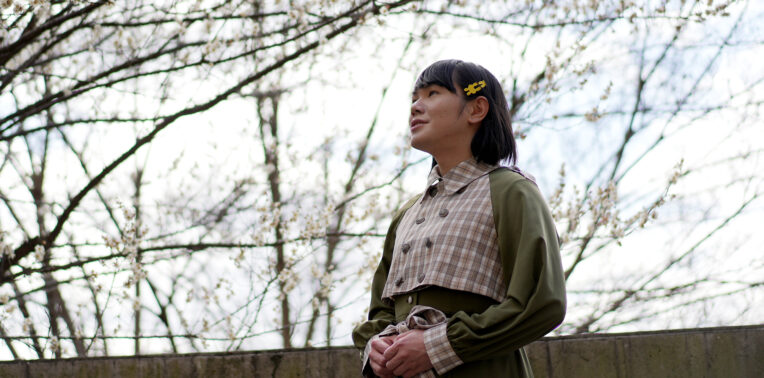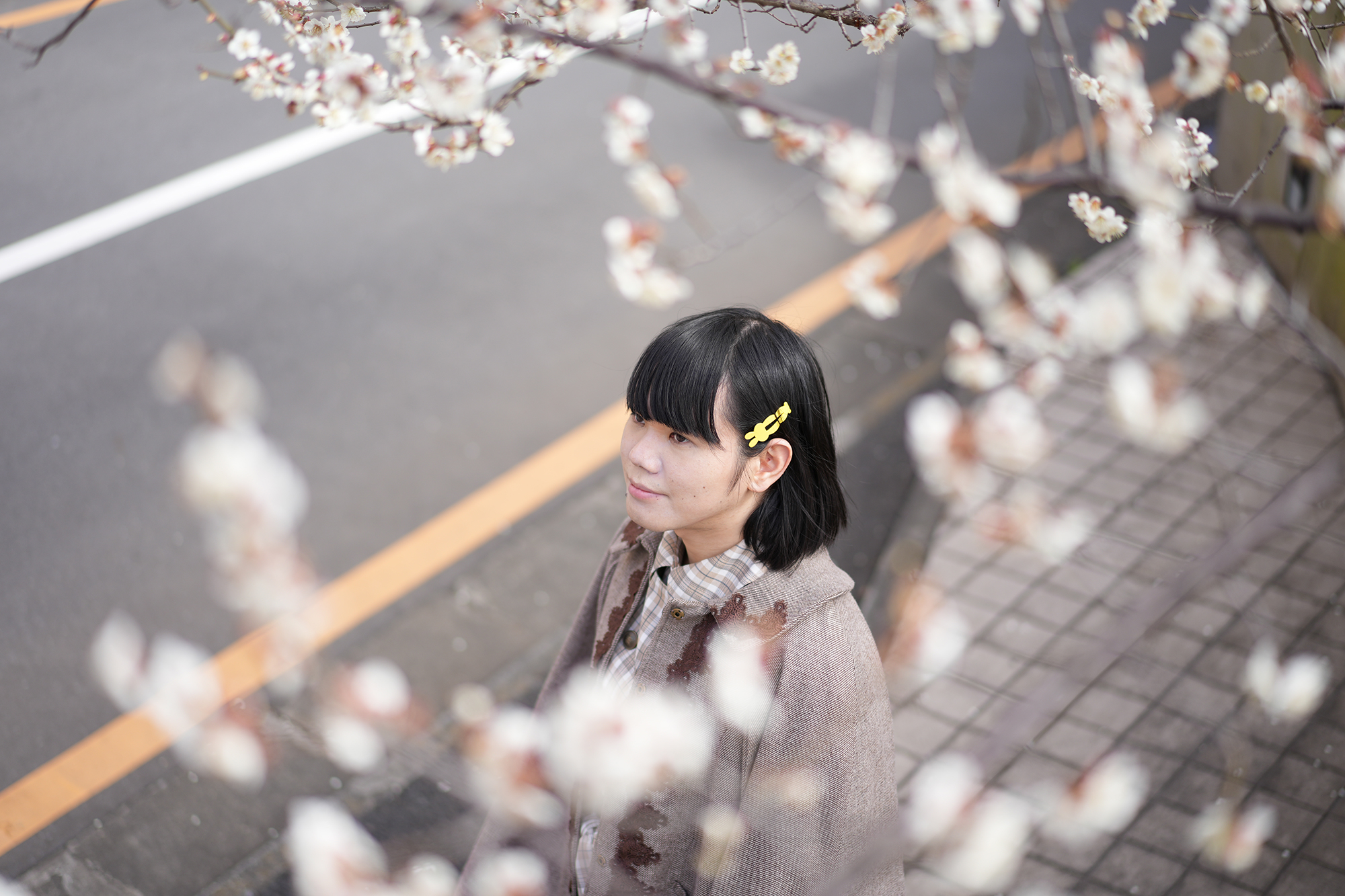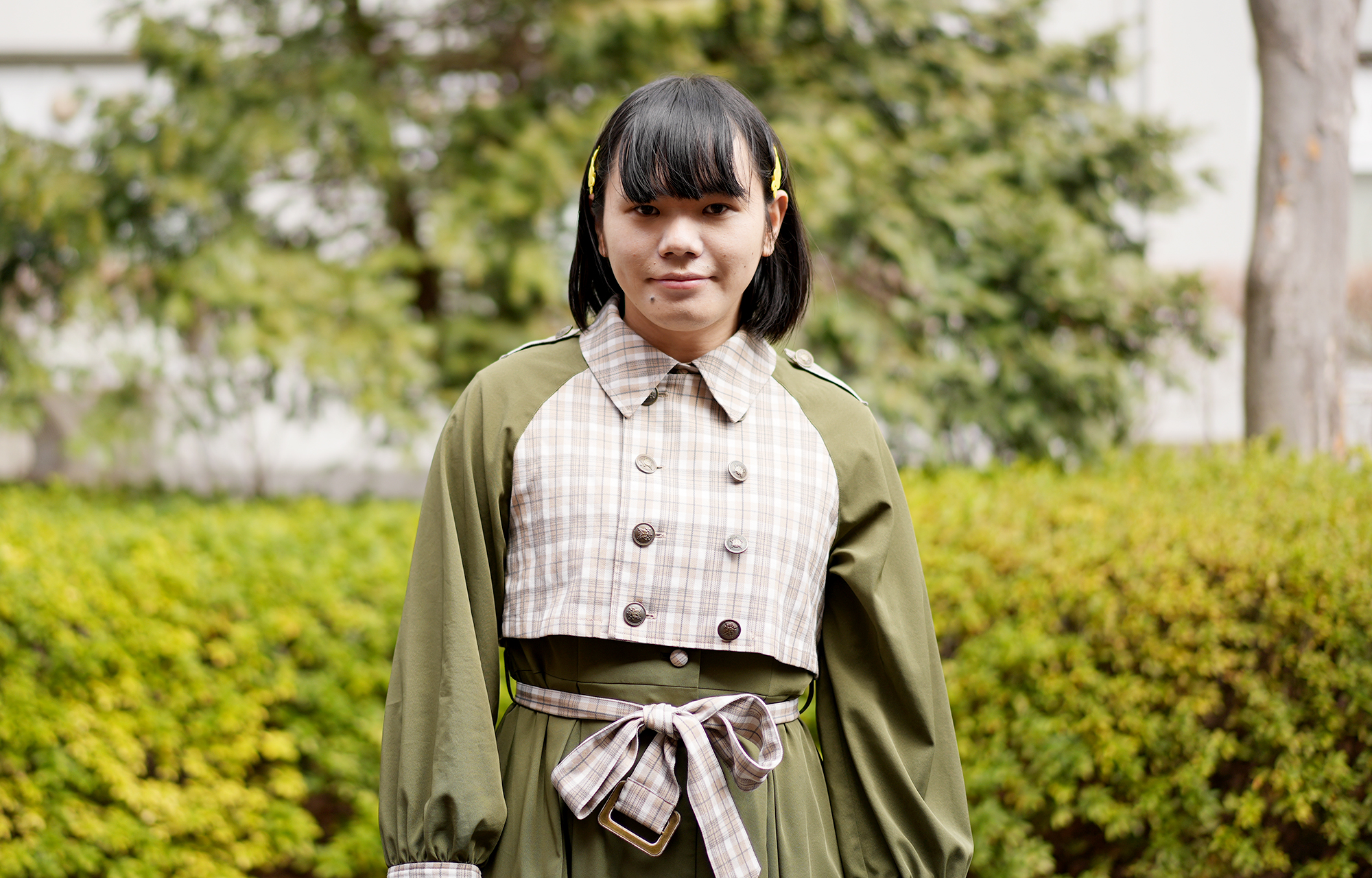
Breaking Out of My Shell and Building Confidence and Connections on Campus
- #LGBTQ
2023.04.06
Honda-san struggled with gender dysphoria throughout their studies at university and graduated from the Department of Electronics and Electrical Engineering in March 2022. They are set to enter the workforce this spring and agreed to this interview in the hope of inspiring others struggling with their sexuality.
(Interview conducted March 2023)
Graduate
Honda-san
April 2018: Enrolled in the Faculty of Science and Technology
March 2022: Graduated from the Department of Electronics and Electrical Engineering at the Faculty of Science and Technology
A Reclusive Adolescence of Anxiety over Gender Dysphoria
Ever since I can remember, I knew I was a girl. Though I wore my hair short and dressed like a typical boy throughout my school years, I never forced myself to act like a boy and always played with the girls. I was always doing things at my own place and was passionate about numbers and crafts. Whenever I had free time I would be reading books. Needless to say, back then I was entirely unfamiliar with terms like ‘gender dysphoria,’ but my discomfort really began to escalate as I entered puberty. Seeing my body change in ways that felt contradictory to my identity was unbearable. I felt increasingly filled with despair and gradually started avoiding people. Throughout junior high and high school, I fully immersed myself in my studies and the kendo club, which were the only escape I had from this internal struggle.
Gaining Positivity in a Campus Community That Embraces Diversity
I chose to attend Keio University because its graduates seemed to have strong job prospects. I loved math, so I chose the Faculty of Science and Technology. I started living on my own as soon as I entered university because I wanted to live true to myself without worrying about what others thought. I joined a chamber music student group and took up the viola, an instrument I had always wanted to try. I entered the university as a male student, keeping my sexuality hidden, but with such an accepting and open atmosphere on campus, I gradually began to open up to others and express myself in more feminine ways. Still, I didn’t have the courage to tell the world I was experiencing gender dysphoria, and I could only bring myself to confide in my closest friends. There were communities like the “LGBT Students of Keio” on campus, but I didn’t even know they existed at the time. Had I known, I might have been more proactive in coming out. I would use the multi-purpose restrooms, although they were harder to find back then. I think they’re much more common now. The hardest thing for me was the annual health checkups. I really disliked having to undress in the presence of other male students, though I’ve heard that now they offer individual accommodations for this.* Of course, I threw myself wholeheartedly into my studies. It was more than the sense of escape I felt in junior high and high school—I genuinely enjoyed learning. I would walk from Hiyoshi Campus to Yagami, where the research centers are, spending my days devouring literature on my subject. From my third year, I delved into research on topics like microfabrication of flexible organic materials using ultrashort pulse lasers.
*If you require any special considerations when undergoing your health checkup, don’t hesitate to contact the Health Center in advance.

Coming Out Gave Me Courage and Confidence
While my student life seemed to be going well, it turned out that the constant stress of hiding my sexuality had reached a breaking point. In my fourth and final year, my mental health deteriorated, and I was unable to work in the lab or participate in my student group activities. I was all set to graduate, but I knew I needed to come out. Otherwise, I would just keep repeating the same pattern. I first came out to my parents, who simply replied: “We know.” They told me that they had pushed me too hard and that from then on, I could take things at my own pace. Hearing this, I felt a joy, as if something that had long been frozen inside me was finally starting to thaw. My student group friends accepted me without question, reacting as if to say, “Why didn’t you say something sooner?” For the first time, I realized that I had been forcing myself into isolation. Encouraged by the support of those around me, I started to look for a job. The staff at Keio’s career center encouraged me to be open about my sexuality and to speak with confidence and share what I’ve worked so hard to achieve. That if I did, things would work out. I mentioned my gender dysphoria in all my job applications and received offers to interview from more companies than I expected. In the interviews, no one asked about my sexuality. I believe they were genuinely interested in my personality and ability. I received a job offer from a major electronics manufacturer and have decided to work at a factory in my hometown in Gunma starting this spring. My parents were thrilled. Over the past year, I have been teaching myself programming for natural language processing using natural language models as part of my physical and mental rehabilitation regimen. In fact, when I presented my research findings during my job interviews, and I believe my employer recognized my efforts. Now, I’m genuinely appreciating the importance and the joy of learning with a goal in mind rather than a means of escape. I’m excited about starting my new life as I begin my professional career.
I Hope This Interview Can Inspire Others to Take Their First Steps
Although I regret not being able to come out during my time at Keio, the four years I spent on campus helped me break out of my shell and connect with others. After graduation, it gave me the courage and confidence to take my first steps forward. Sexuality is spectrum, as expressed by the term LGBTQ, and I believe there are many people on campus who struggle with their identities. Regardless of your sexuality, I believe you must be true to who you really are. By doing so, you allow your unique personality and ability to shine, and there are people and organizations that will value and acknowledge your efforts and accomplishments. I hope this interview can inspire others who are struggling to take their first steps to embark on their journey towards living authentically.

(Photo by KIYOSHIRO OKADA)

